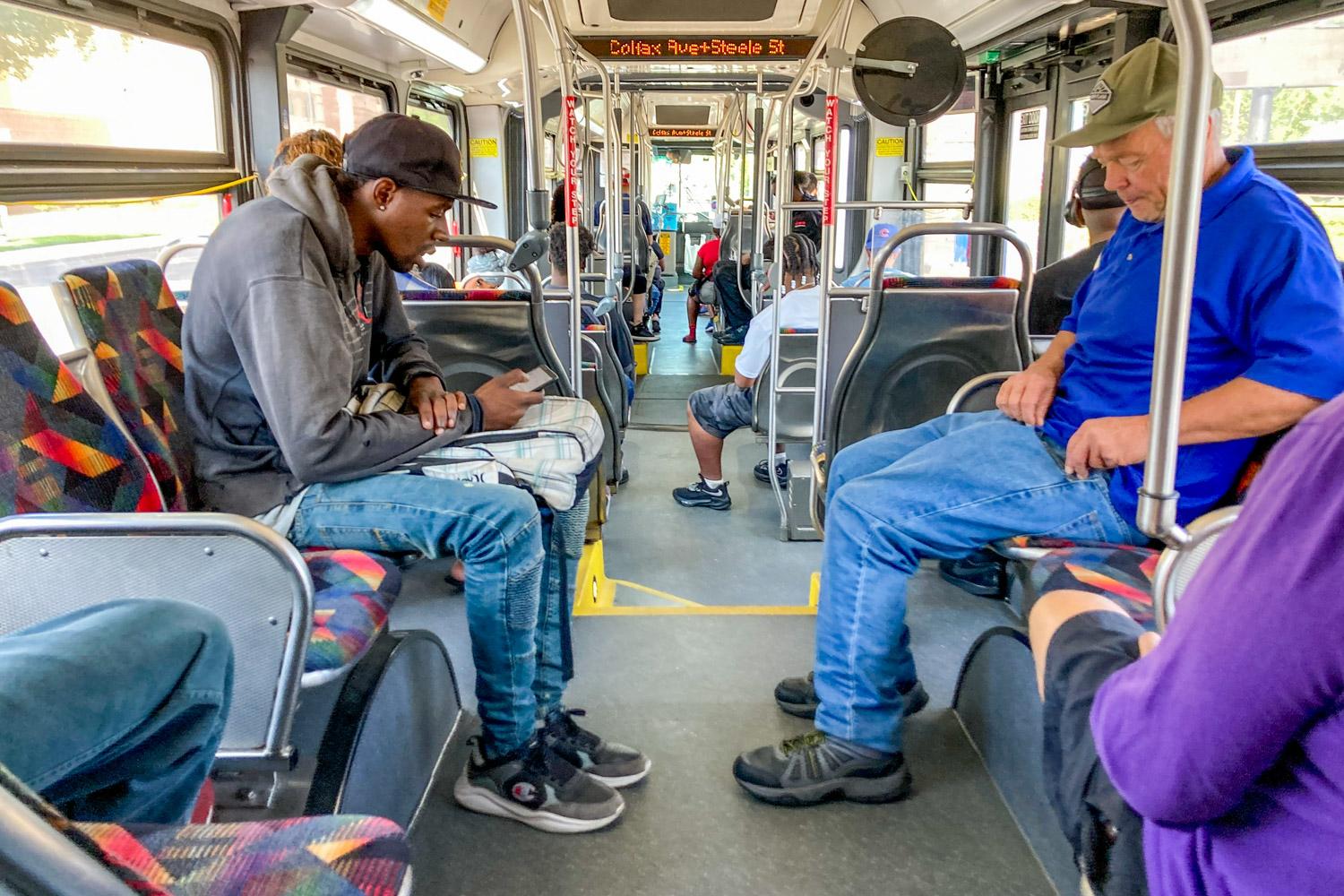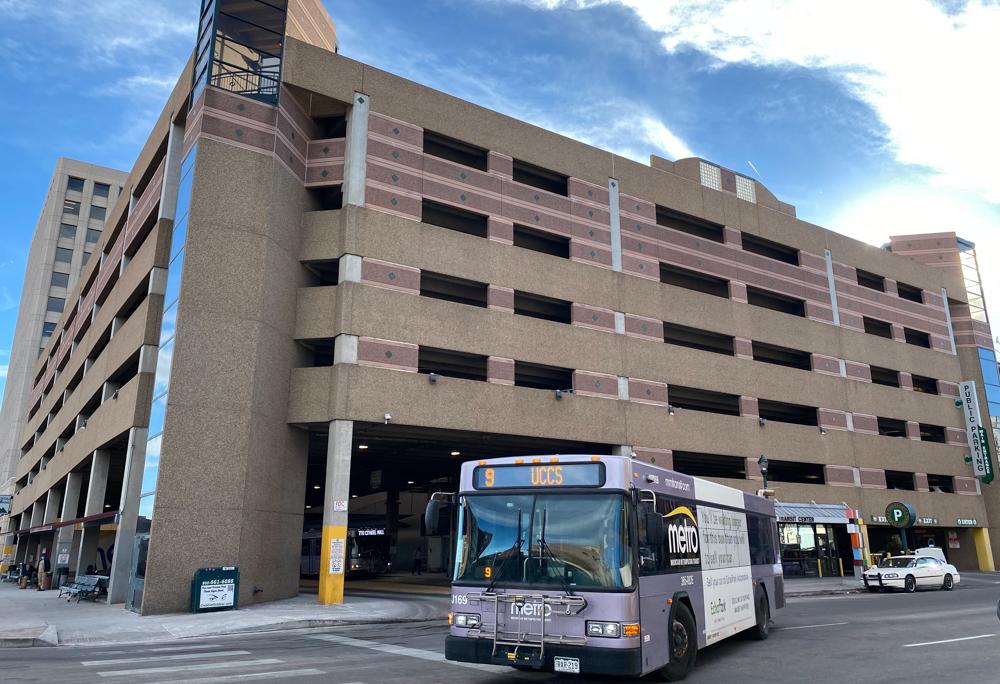
The Regional Transportation District’s “Free Fare for Better Air” campaign which offered free bus and train rides during the peak of the ozone season over the last two summers won’t return this year.
The program was the result of state leaders pushing for free public transit in the Denver region and across Colorado to encourage alternatives to driving during the summer ozone season. Results suggest that free rides did contribute to a drop in driving and its related pollution, though it was a relatively small one.
This year’s free transit funding bill is smaller than past ones. Last year, the state covered $13.8 million of the $15.6 million it cost RTD to provide free rides during July and August. This year, legislators could only find about $10 million for free fare programs at RTD and all the other transit agencies across the state.
“If there was money for it, I’m certain that we would have embarked on the [ozone season] program,” said RTD General Manager and CEO Debra Johnson.
The new bill, which Gov. Jared Polis has signed into law, says transit agencies can apply for state money to fund either an ozone-season free fare program or a year-long youth free fare program. The bill also says RTD is eligible only for the youth program.
“There wasn't enough money to do both,” said Sen. Kevin Priola, D-Henderson, a prime sponsor of the bill.
Advocates who celebrated the free ozone-season fare program in recent years said they’re now much more excited by the legislature’s recent move to finally direct state money to transit agencies like RTD to improve public bus and train service.
“That's what we think is more impactful,” said Molly McKinley, policy director for the Denver Streets Partnership.
RTD officials said they intend to apply for state money to support its free youth fare pilot program that started last September. The board will also vote later this year on whether to make the program permanent.
The youth fare program has been a big success so far, Johnson said. An early analysis shows youth ridership jumped 57 percent between September 2023 and February 2024 when some 165,000 young passengers rode.
RTD’s data also show that the highest youth ridership bus routes serve neighborhoods with relatively large populations of people of color and people with low incomes. The No. 45 bus, for example, that runs through Montbello and Green Valley Ranch in northeast Denver carries an average of more than 4,600 youth a month — and 85 percent of those are people of color.
Johnson also said that Denver Public Schools officials have told her that free rides have lowered truancy rates. Scott Pribble, a DPS spokesperson, said they don’t have a way to track that but added that free rides are, “certainly a strategy that helps students get to school on a daily basis.”
Free ozone-season transit will live on elsewhere across Colorado, probably.
Smaller agencies that apply for the ozone-season grant will be able to offer free transit in July and August of 2024, and June through August 2025, said Ann Rajewski, executive director of the Colorado Association of Transit Agencies.
“Some agencies really have found a huge boost from the zero-fare program over the last couple years,” Rajewski said.

Mountain Metro in Colorado Springs, for example, set an all-time ridership record last summer during its free-fare program. A spokesperson for Mountain Metro said the transit agency will apply for another ozone season grant this year.
Pueblo Transit has also seen big ridership gains during recent ozone-season free-fare programs, and its board will soon decide which grant it will pursue.
But Pueblo Transit director Benjamin Valdez said he’s leaning toward the youth program. The local school district allows students to enroll in schools across town, he noted, meaning many travel outside of their neighborhoods.
“We'll see how it all pans out. I mean, they have the final say, not me,” Valdez said of his board.
The bill also plants the seed for a future 'statewide transit pass'
It creates a committee within the Colorado Department of Transportation charged with creating a “viable proposal” for a transit pass that could be used in different cities across the state, on CDOT’s own intercity bus services, and perhaps even a Front Range Passenger Rail line someday.
Such passes already exist in other countries like Israel and the Netherlands. But bill sponsor Priola said it was two local systems that inspired him to push for a Colorado transit pass: prepaid ski passes like the Ikon and Epic passes that work at multiple mountains and the new state park pass that comes standard with vehicle registrations.
The point, Priola said, is to make it as easy as possible to ride transit, no matter where you are in the state.
“It'll be good for transit in general,” Priola said. “It'll increase ridership. It'll lower cost to consumers and lower barriers to entry.”









